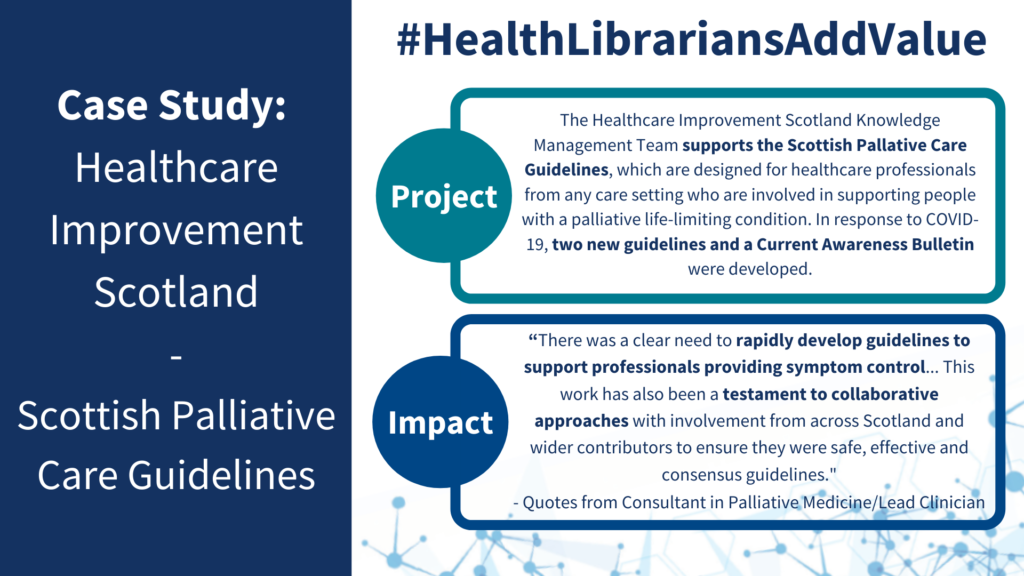Scottish Palliative Care Guidelines
This case study is part of Health Librarians Add Value, a campaign run jointly by NHS Education for Scotland (NES) and CILIPS. It has been provided by the Healthcare Improvement Scotland Knowledge Management Team. Read other case studies here.
Outline of project
The Healthcare Improvement Scotland Knowledge Management Team (HIS KMT) supports the Scottish Pallative Care Guidelines, which are designed for healthcare professionals from any care setting who are involved in supporting people with a palliative life-limiting condition. This support includes literature searches to update the guidelines, content management of the website, being the first point of contact for queries directed from the website, and production of a monthly current awareness bulletin.
In response to COVID-19, two new guidelines were developed rapidly as temporary additional guidance for specific pandemic related situations. View the new guidelines here. The HIS KMT supported the guideline development group through the drafting process and made the guidelines, and supporting material, available online. In addition to this, the KMT created a weekly current awareness bulletin on COVID-19 and palliative care. In order to do this, the information scientists created a checklist containing core journals and key palliative care organisations and set up a search strategy in Medline which could be run weekly. New COVID-related resources were added as they became available in what was a rapidly evolving response by the whole library and information community. It was important to keep an eye on various mailing lists as resources became available and to consult the COVID-19 portal on the Knowledge Network.
Impact
Dr Deans Buchanan, Consultant in Palliative Medicine/Lead Clinician at NHS Tayside said:
In an infective pandemic all should be done to prevent avoidable death from that infection but at the same time all should be done to relieve suffering from the impact of serious illness and to relieve suffering when dying is not avoidable. The Scottish Palliative Care community wished to stand with those who were suffering from any illness during the pandemic, those who were at the end of life as a result of Covid-19 illness and those who were bereaved. There was a clear need to rapidly develop guidelines to support professionals providing symptom control in the circumstances where someone was imminently dying from Covid-19 lung disease or in a situation where the normal medications for symptom control where not accessible due to supply disruption. This work has also been a testament to collaborative approaches with involvement from across Scotland and wider contributors to ensure they were safe, effective and consensus guidelines. A feedback form has also been embedded within the guidelines to ensure future iterations are informed through real world experience as well as a continual evidence review approach.
